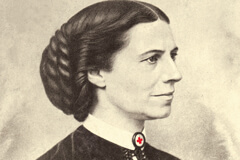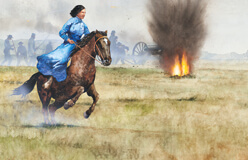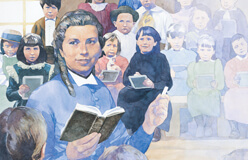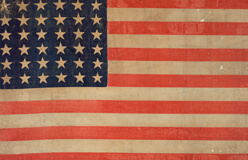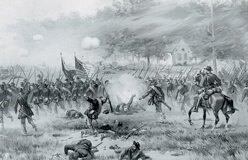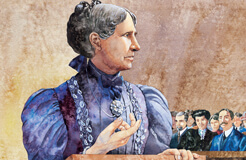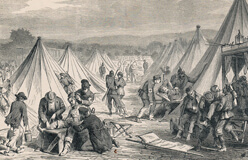Clara Barton first became well known during the Civil War. She started a one-woman campaign to improve conditions for the injured.
She cooked meals for wounded soldiers. She comforted the dying. She even dug bullets out of wounded soldiers with her penknife when no doctor was available. Her tireless service earned her the nickname Angel of the Battlefield.
